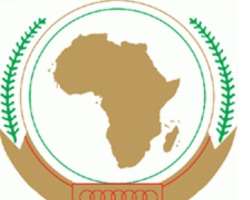Communiqué of the Peace and Security Council of the African Union (AU), at its 384th meeting on the situation in the Arab Republic of Egypt

ADDIS ABABA, Ethiopia, July 5, 2013/African Press Organization (APO)/ -- The Peace and Security Council of the African Union (AU), at its 384th meeting held on 5 July 2013, in the presence of the Chairperson of the Commission, took the following decision on the situation in the Arab Republic of Egypt:
Council,
1. Takes note of the update provided by the Commissioner for Peace and Security and the briefing made by the Commissioner for Political Affairs on the situation in Egypt, as well as of the statement made by the Permanent Representative of Egypt to the AU;
2. Recalls its previous pronouncements on the situation in Egypt, in particular communiqué PSC/PR/COMM.(CCLX), adopted at its 260th meeting held on 16 February 2011, in which Council, among others, noted the deep aspirations of the Egyptian people, especially its youth, for change and the opening of political space, expressed the AU's solidarity with the Egyptian people, whose desire for democracy is consistent with the relevant AU instruments, and recognized the exceptional nature of the situation then prevailing in Egypt. Council further recalls press statement PSC/PR/BR.3(CCLXVIII) adopted at its 268th meeting held on 23 March 2011, which welcomed the positive evolution of the situation, as well as the relevant paragraphs of the decisions on the reports of the Peace and Security Council on its Activities and the State of Peace and Security in Africa adopted by the Assembly of the Union at its 18th, 19th, 20th and 21st Ordinary Sessions, held in January and July 2012, and in January and May 2013, respectively;
3. Notes that, while significant progress has been made in the transition, notably with the election, in June 2012, of a President of the Republic, Egypt continues to face serious challenges, marked by the growing frustration of many Egyptians over the management of the country, cumulative economic difficulties, deteriorating security, political and social polarization and lack of consensus on the best way forward. Council recalls the appeals and efforts made by the AU, including the mission undertaken to Egypt by the Panel of the Wise in June 2011, to impress upon the Egyptian stakeholders the need for constructive dialogue and compromise in order to overcome their differences and put the national interest before personal, partisan and ideological considerations;
4. Further notes the escalation of the situation over the past few days, which led to the overthrow of the elected President Mohamed Morsi, the suspension of the Constitution adopted by referendum in December 2012, and the appointment and swearing in of a caretaker Head of State. Council expresses deep concern at the risks the prevailing situation poses for the long-term stability of Egypt and cohesion of its people, with far-reaching national and regional consequences. Council endorses the press statements on the situation in Egypt issued by the Chairperson of the Commission on 3 and 4 July 2013;
5. Recalls the relevant AU instruments on unconstitutional changes of Government, notably the Lomé Declaration of July 2000 and the African Charter on Democracy, Elections and Governance of January 2007, which provide for the automatic implementation of specific measures whenever an unconstitutional change of Government occurs, and reiterates AU's condemnation and rejection of any illegal seizure of power;
6. States that the overthrow of the democratically elected President does not conform to the relevant provisions of the Egyptian Constitution and, therefore, falls under the definition of an unconstitutional change of Government as provided for in the instruments mentioned in paragraph 5 above. Accordingly, and as mandated by the relevant AU instruments, Council decides to suspend the participation of Egypt in the AU's activities until the restoration of constitutional order;
7. Calls on all Egyptian stakeholders to embrace the spirit of dialogue and mutual accommodation and to refrain from any acts of violence and retribution. Council stresses the obligation of all Egyptian stakeholders to work towards the fulfillment of the legitimate aspirations of the Egyptian people as embodied in the February 2011 Revolution;
8. Encourages the Egyptian political actors to persevere on the path of national reconciliation that will contribute to a smooth preparation for elections leading to a return to constitutional order. In this regard, Council urges the new Egyptian authorities to engage, without delay, in inclusive consultations towards the adoption of a consensual timeframe for the organization of free, fair and transparent elections;
9. Emphasizes the solidarity of the AU with the people of Egypt and its commitment to assist in whatever way possible the process aimed at speedily returning the country to constitutional order, and to support long-term efforts to address the structural problems facing Egypt. In this respect, Council welcomes the plan of the Chairperson of the Commission to dispatch a team of high-level personalities to Egypt to interact with the ruling authorities and other Egyptian stakeholders, as they work towards a transition that would lead to an early return to constitutional order. Council requests that preparations for the dispatch of this mission be expedited and encourages the Chairperson of the Commission to take any other measures that she would deem appropriate to facilitate the resolution of the current crisis and the building of a consensus on the way forward among the Egyptian stakeholders;
10. Appeals to AU partners, both bilateral and multilateral, to lend their full support to AU's efforts and to work towards a coordinated approach on the situation. In this respect, Council requests the Chairperson of the Commission, under the AU's leadership, to establish an International Consultative Forum that would bring together Egypt and relevant international stakeholders to facilitate coordinated action in support of a transition leading to the restoration of constitutional order, the deepening of the democratic process, and the mobilization of economic and financial support commensurate with the needs of Egypt and the challenges facing the country;
11. Decides to remain actively seized of the matter.
